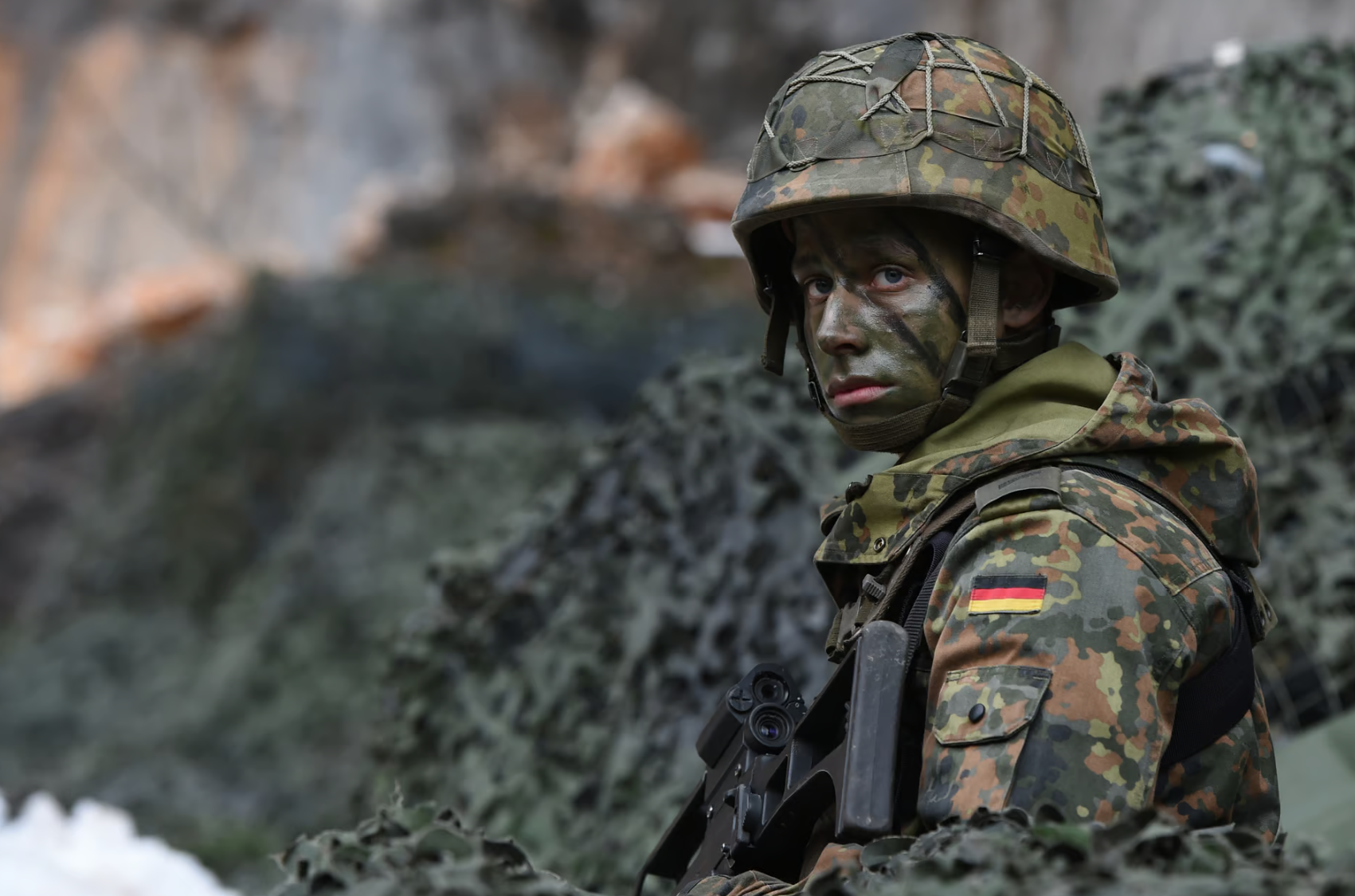ANTALYA (Realist English). In a dramatic turn that stunned NATO allies, Germany’s new chancellor Friedrich Merz has committed to ramping up defense spending to 5% of GDP, embracing demands long pushed by U.S. President Donald Trump. The announcement, made by Foreign Minister Johann Wadephul at NATO talks in Turkey, marks the most ambitious military posture Germany has adopted in generations.
The move comes just days after Merz, in office for less than two weeks, declared his intention to build “Europe’s strongest conventional army.” He framed the policy as both a response to Russia’s growing threat and an overdue effort to redefine Germany’s role within NATO.
“Our friends and partners expect this from us — in fact, they practically demand it,” Merz said on Wednesday.
Security expert Roderich Kiesewetter, a prominent figure in Merz’s Christian Democratic Union (CDU), described the decision as a “paradigm shift”, telling Bild:
“It won’t happen overnight, but it must happen.”
If realized, the 5% pledge would push Germany’s annual defense budget above €200 billion ($224 billion) — more than double its current spending and far beyond the 2% NATO threshold it only recently met. The figure reflects NATO Secretary General Mark Rutte’s proposed framework of 3.5% for military forces and 1.5% for related security, including cyber and infrastructure.
From peace dividend to rearmament
Germany has long resisted large-scale military investment, haunted by its World War II legacy and shielded by the U.S. security umbrella during the Cold War. After 1990, successive governments reaped a so-called “peace dividend,” sharply reducing the number of tanks, aircraft, and operational forces.
But decades of neglect left the Bundeswehr overstretched and under-equipped. German deployments in Afghanistan and Mali were frequently marred by reports of non-functional helicopters, faulty rifles, and critical personnel shortages. A 2023 report by the German parliament’s defense commissioner Eva Högl warned the military still has “too little of everything,” from drones and air defense to AI capabilities.
Despite plans to grow troop strength to 203,000 by 2031, recruitment has lagged badly, with the military falling short by over 20,000 soldiers last year.
Now Merz is accelerating that transformation. His government has secured looser debt constraints and hundreds of billions in additional infrastructure and defense funding, reframing rearmament as economic stimulus in a recession-hit country.
“This isn’t a burden — it’s an investment in both security and economic revitalization,” Merz told Die Zeit. “We must also begin reducing our dependence on the United States.”
Backlash from left and right
The announcement triggered an immediate political backlash. Peter Boehringer, a lawmaker from the pro-Russian Alternative for Germany (AfD), called the proposal “completely absurd.” Meanwhile, Ralf Stegner of the center-left SPD, Merz’s junior coalition partner, criticized what he called an escalating arms race.
“In a world already torn by war, the priority should be disarmament — not militarization,” Stegner told Handelsblatt.
“Spending billions on weapons that reduce the world to rubble, and then billions to rebuild Gaza, Ukraine, or Aleppo — that’s collective madness.”
Germany’s pledge to meet Trump’s 5% defense demand represents a tectonic shift in European security. It reflects both a strategic recalibration toward deterrence and a political realignment with Washington. Whether this rearmament consolidates NATO or fragments European politics will depend not just on funding — but on Berlin’s ability to deliver force structure, doctrine, and public consensus to match its ambitions.


















